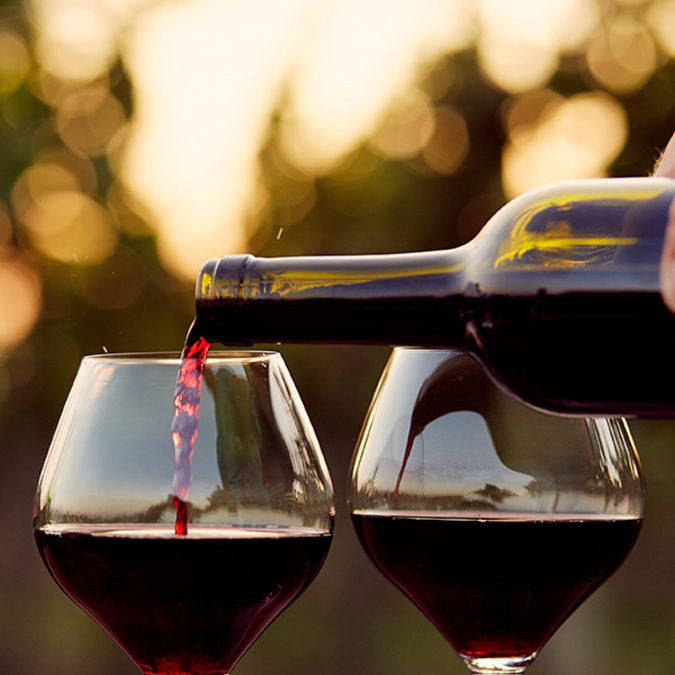Having a wine cellar allows you to always have wine on hand whenever you want — and to save wine to drink years in the future.
As you start a wine cellar, here are four things to know.
1. You must control the atmosphere
Wine cellars should be kept cool and humid, at 52-58 degrees and above 50 percent humidity, according to Fine Wine Reserve.
Colder temperatures slow down the aging of the wine. Warmer temperatures can speed up the aging process and cause your wines to peak too early.
Humidity is another factor to keep in mind when creating the right atmosphere for your wine cellar. Humidity above 50% will keep your corks in good shape. Corks require moisture to keep from drying out and shrinking. If the cork shrinks air will enter the bottle and could cause premature oxidation and compromise the integrity of the wine. Store your wine on its side, keeping the wine in contact with the cork.
Light can also impact wine. Too much light will cause the wine to change its structure in the bottle. That is why most wines for aging are bottled in darker bottles. If you have purchased a wine in a clear bottle, it’s likely that it was not made to age for long.

2. Plan your wine collection
Not all wines are meant to be aged. Big, bold, tannic red wines require the most aging. Bordeaux blends are best at age 20 or even 25 years old. Lighter red wines, like Pinot Noir, age well 5 to 10 years. French Burgundy (Pinot Noir) may stay vibrant for 20 plus years.
White wines are best from 1-5 years old. Research white wines to know which are collectible and which should be opened tonight. Consider collecting wines you want to keep for 20 years, 10 years, and wines to drink now.
Take advantage of the space in your cellar by stocking wines you love and collecting new bottles as you discover them, such as from wine clubs and auctions or while on vacation.
3. Keep a tracking system
Tracking is important when you have a wine cellar. You certainly do not want to find yourself opening a bottle that is way past its prime. As you purchase more wine, you might need to consider a database, like an Excel spreadsheet or an online program like Cellar Tracker. When tracking, you will want to include the name of the wine, the vintage, varietal, region, price, and where you’ve stored it in the cellar (i.e., Row 2, bin D). Some cellar storage software offers you tasting notes on your wine and when it’s best to drink it. This keeps your investment sound.
A time may come where you have an abundance of wine within its peak drinking window, but you are unable to drink it. One option is a tax-deductible donation of the wine. Charity wine auctions, such as the Nashville Wine Auction, can utilize the donation in an auction lot offering a unique wine experience.
Nashville Wine Auction’s upcoming July event, L’Ete du Vin, auctions extraordinary wines, tastings and dinners with celebrity chefs, wine trips and luxury items. Nashville Wine Auction proceeds benefit local cancer charities.
“Our events are all about exceptional wine. Our goal is to create the best experience that elevates the wine being served.” Holly Whaley, President/CEO Nashville Wine Auction.
For more information about Nashville Wine Auction, including details about upcoming events, visit www.nashvillewineauction.com.

